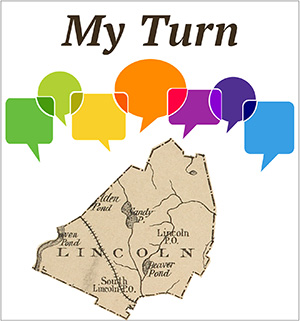By Barbara Slayter
This midterm election on November 8, Massachusetts has four questions on the ballot. I write in support of ballot question #1 which, in a time of growing inequities within this country (including Massachusetts), would provide a reliable source of funds for two critical public goods that have been deteriorating over past decades: transportation infrastructure and public education. The amendment has some identifiable shortcomings, but it is a step in the right direction. As with all policies, the test will be in its implementation.
What is the Fair Share Amendment?
If passed, this Ballot Question would amend the state constitution to allow for an additional 4% income tax on the portion of a tax filer’s taxable income that is above $1 million. The money raised by this tax must be used to support public education and transportation. The Fair Share Amendment is also known as a “millionaire tax.”
Why must we amend the Constitution
Massachusetts’ state constitution currently says that there can be only a single tax rate applied to personal income. Most other states — and the federal government — tax different levels of income at different rates. Adding an additional tax rate for high income earners requires an amendment to this part of the Constitution. The state Constitution has been amended many times.
Why vote yes?
- This amendment would bring in approximately $2 billion in additional tax revenue each year.
- The Fair Share Amendment will require that tax revenue raised by the additional 4% tax on taxable income over $1 million be spent on public education and transportation. This restriction is included in the language that will be added to the state constitution.
- Declining investment in state colleges and universities has caused tuition and fees to rise making higher education either unattainable or leaving students with high levels of debt. Increased investment in public education for children will help ensure that all students have the best chance to achieve their full potential.
- Deteriorating infrastructure and traffic congestion are significant problems in Massachusetts. A long list of projects is stalled for lack of funds.
What a “yes” vote would not do
- Tax a lot of one-time millionaire homeowners or business owners. Only a tiny percentage of Massachusetts households earn over $1 million in taxable income over the course of a single year, well under one percent of all households or fewer than 7 of every thousand. Even then, only that portion of their total taxable income that exceeds the $1 million threshold would be subject to the additional 4 percent tax.
- Force millionaires to move away. This is unlikely. High-income people tend to be older, married with children, and embedded in their communities and the local business networks that have created their wealth. An additional 4% tax on just a portion of their income represents a relatively small increase in their overall state, local and federal tax costs.
Sources of information on the Fair Share Amendment:
- Center for State Policy Analysis, Tufts University
- Massachusetts Budget and Policy Center
- “A yes vote on Question #1 will expand opportunities for everyone” — Boston Globe, op-ed by Elizabeth Warren and Ayanna Presley, 25, 2022 (advocates voting yes)
- “Hesitation over the flawed millionaires tax doesn’t make you a heartless capitalist” — Boston Globe, column by Larry Edelman, Oct. 27, 2022 (advocates voting no)
- Information for voters on Question 1, Mass. Secretary of State
Barbara Slayter is co-chair of the Lincoln Democratic Town Committee.
“My Turn” is a forum for readers to offer their letters to the editor or views on any subject of interest to other Lincolnites. Submissions must be signed with the writer’s name and street address and sent via email to lincolnsquirrelnews@gmail.com. Items will be edited for punctuation, spelling, style, etc., and will be published at the discretion of the editor. Submissions containing personal attacks, errors of fact, or other inappropriate material will not be published.

I strongly disagree with the premise that no high income individuals will leave the state. In fact, we have seen a steady stream of just that since 1993, with most moving to NH or Florida. Take a look at this analysis from the non-partisan Tax Foundation.
https://taxfoundation.org/massachusetts-graduated-income-tax-amendment/